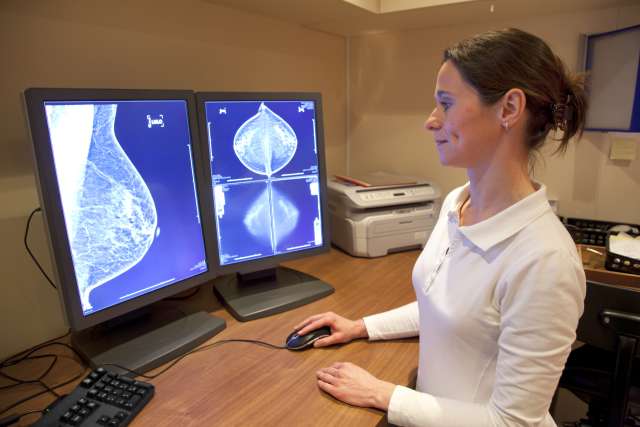Dr. William Aronson |
Men with prostate cancer who ate a low-fat diet and took fish oil supplements had lower levels of pro-inflammatory substances in their blood and a lower cell cycle progression score — a measure used to predict cancer recurrence — than men who ate a typical Western diet, UCLA researchers found.
The findings are important because lowering the cell cycle progression (CCP) score may help prevent prostate cancers from becoming more aggressive, said lead study author William Aronson, a clinical professor of urology at UCLA and chief of urologic oncology at the West Los Angeles Veterans Affairs Medical Center.
"We found that CCP scores were significantly lower in the prostate cancer of men who consumed the low-fat fish oil diet, as compared to men who followed a higher-fat Western diet," Aronson said. "We also found that men on the low-fat fish oil diet had reduced blood levels of pro-inflammatory substances that have been associated with cancer."
The study appears in the early online edition of Cancer Prevention Research, a peer-reviewed journal of the American Association for Cancer Research.
This study is a follow-up to a by Aronson and his team that found that compared to a traditional, high-fat Western diet, a low-fat diet with fish oil supplements eaten for four to six weeks prior to prostate removal slowed the growth of cancer cells in human prostate cancer tissue.
That short-term study also found that the men on the low-fat fish oil diet were able to change the composition of their cell membranes in both the healthy cells and the cancer cells in the prostate. They had increased levels of omega-3 fatty acids from fish oil and decreased levels of the more pro-inflammatory omega-6 fatty acids from corn oil in their cell membranes, which may directly affect the biology of the cells, Aronson said.
"These studies are showing that in men with prostate cancer, you really are what you eat," Aronson said. "The studies suggest that by altering the diet, we may favorably affect the biology of prostate cancer."
The men in the previous study were placed into one of two groups: the low-fat fish oil diet or the Western diet. For the Western diet, 40 percent of the calories were from fat, generally equivalent to what many Americans consume today. The fat sources also were typical of the American diet and included high levels of omega-6 fatty acids from corn oil and low levels of fish oil that provide omega-3 fatty acids.
With the low-fat diet, 15 percent of the calories were from fat. Additionally, the men on this diet took five grams of fish oil per day in five capsules, three with breakfast and two with dinner, to provide omega-3 fatty acids. Omega-3 fatty acids have been found to reduce inflammation and may be protective for other malignancies.
For the current study, Aronson wanted to look at the potential biological mechanisms at work in the low-fat fish oil diet that may be providing protection against cancer growth and spread. They measured levels of pro-inflammatory substances in the blood and examined the prostate cancer tissue to determine the CCP score.
"This is of great interest, as the CCP score in prostate cancer is known to be associated with more aggressive disease and can help predict which patients will recur and potentially die from their cancer," Aronson said.
Further, Aronson and his team analyzed one pro-inflammatory substance called leukotriene B4 (LTB4) and found that men with lower blood levels of LTB4 after the diet also had lower CCP scores.
"Given this finding, we went on to explore how the LTB4 might potentially affect prostate cancer cells and discovered a completely novel finding — that one of the receptors for LTB4 is found on the surface of prostate cancer cells," Aronson said.
Further studies are planned to determine the importance of this novel receptor in prostate cancer progression, he said.
Based on the results of his research, Aronson has received funding to start a prospective, randomized trial at UCLA next year studying 100 men who have elected to join the active surveillance program, which monitors slow-growing prostate cancer using imaging and biopsy instead of treating the disease. Study volunteers will receive a prostate biopsy at the beginning of the trial and again at one year. The men will be randomized into either a group that eats their usual diet or a low-fat fish oil diet group. Aronson will measure markers in the prostate biopsy tissue to check for cell growth and CCP scores.
Prostate cancer is a leading cause of death among men in the United States. It's estimated that more than 230,000 American men will be diagnosed with prostate cancer this year alone, with more than 29,000 dying from their disease.
The study was funded by the National Institutes of Health (P50CA92131, P30CA016042, UL1TR000124).



